In the political system in Vietnam, the Chairman of the Provincial People's Committee decides the development direction and quality of management in the locality. The Chairman of the Inspection Committee decides discipline in the Party. The Chief Inspector decides integrity in the administrative apparatus. When all three of these officials are not local people, the ability to handle matters objectively, impartially, and above group interests... will be much higher.
This decision demonstrates the Party's strategic vision in personnel work and strong determination for the integrity of the organizational apparatus in localities.
Previously, the Politburo also issued a strict regulation to avoid the situation of "cronyism" in personnel policy. That is Regulation No. 114-QD/TW dated July 11, 2023 on controlling power and preventing and combating corruption and negativity in personnel work.
The Politburo stipulates that people with family relationships cannot be assigned to hold the following positions at the same time: members of the same standing committee of the Party Committee, Party Executive Committee, Party Delegation; collective leadership of agencies and units; heads and deputy heads of the same locality, agency, unit; heads of Party Committees or heads of administrative agencies and heads of agencies including internal affairs, inspection, finance, banking, tax, customs, industry and trade, investment planning, natural resources and environment, military, police, courts, and procuracies at the Central level or at the same level in a locality.
Regulation 114 clearly states that acts of taking advantage of and abusing one's position and power include using one's own prestige and influence and that of family members to make decisions, direct, advise, propose, and vote according to one's will; allowing family members or close relatives to take advantage of one's position, power, and prestige to influence, manipulate, and interfere in stages of personnel work.
However, if we say that the Politburo’s request to “delocalize” leaders is only to avoid “being an official for one family,” then it is only partly true. The other important part is to train and challenge officials to mature in all regions of the country, to train leaders with the mindset of “serving hundreds of families.”
Officials, especially young leaders, if they only stay in a familiar working environment, will easily lead to stagnation, subjectivity, and not develop their full potential. They need to be challenged and given opportunities to develop in their "new homeland", because as President Ho Chi Minh taught, "Hard training leads to success".
However, transferred cadres will also encounter many difficulties in the new area such as not understanding the local culture and psychology, "unwritten rules", not having a good staff to start the work; may have to face hidden obstacles, even isolation...
Therefore, in addition to the capacity, courage and vision of the cadres, it is also necessary to perfect the mechanism and policies, create a working environment and protective measures, encourage the spirit of daring to think, daring to do, daring to decide, not afraid of conflicts of interests or hidden reactions in a "strange country", ready to touch the "bottlenecks" that have existed for many years...
At the same time, rotating leaders also need the necessary amount of time to turn their determination into reality, maybe 3-5 years. Do not be impatient to demand quick results, avoid the situation of "forced ripening", "red but not ripe"...
To select the right cadres with heart, vision, and ability to be the nucleus of unity in the new homeland, the cadre assessment process must be accurate and objective, in accordance with the spirit and content of Regulation No. 377-QD/TW dated October 8, 2025 of the Politburo on decentralization of cadre management and planning, appointment, nomination, temporary suspension from work, dismissal from office, resignation, and dismissal of cadres.
The rotation of provincial leaders also needs to be linked to the two-level local government model, when the role of awareness and decisive action from the head of government is pushed higher than before.
As of early November 2025, out of 34 Chairmen of People's Committees of provinces and centrally run cities, 20 were transferred officials and will be completed as planned by December 15.
Among these are officials who were transferred very far away, such as Chairman of the People's Committee of Can Tho City Truong Canh Tuyen, whose hometown is Thanh Hoa province; Chairman of the People's Committee of Dak Lak province Ta Anh Tuan, whose hometown is Hanoi; Chairman of the People's Committee of Quang Ngai province Nguyen Hoang Giang, whose hometown is Hai Phong...
Rotating local leaders is not simply a "disruption of the area" for the leader, but requires a strong change in awareness in the entire political system, especially from the cadres, party members, and people in provincial administrative units. In fact, the head of the provincial party committee or administrative agency, even if he comes from another place, does not "fall from the sky". These are all well-trained cadres with a lot of experience, having gone through many working positions to mature. Therefore, this is also an opportunity for the local apparatus to "renew" itself. If local cadres, civil servants, and public employees improve their professionalism and public service discipline, the Party's new policy will fully promote its value.
It can be said that when provincial leaders have a vision beyond local limits and have a national strategic mindset, this will be the source of human resources to become high-ranking officials after training in many different environments and circumstances. We have more basis to strengthen our belief in the "key of the key" stage that decides to implement the Party's resolutions into reality, bringing the country firmly into a new era.
Source: https://baotintuc.vn/thoi-su/lanh-dao-khong-phai-nguoi-dia-phuong-thu-thach-va-co-hoi-doi-moi-20251111120451386.htm





![[Photo] Prime Minister Pham Minh Chinh chairs a meeting on housing policy and the real estate market.](https://vphoto.vietnam.vn/thumb/1200x675/vietnam/resource/IMAGE/2025/11/11/1762838719858_dsc-2107-jpg.webp)




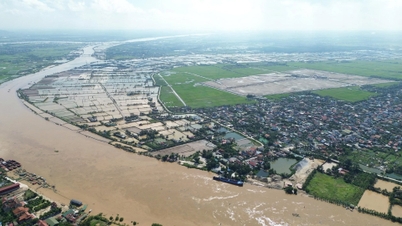

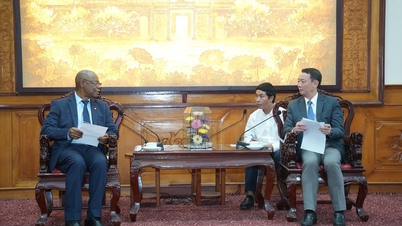

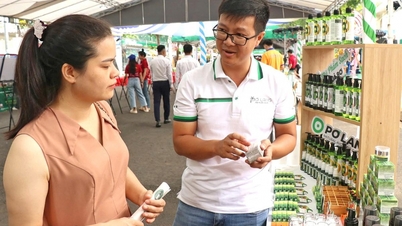

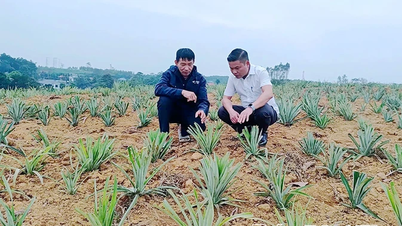

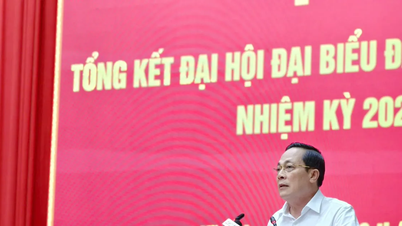
















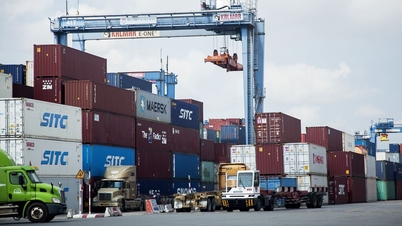
























































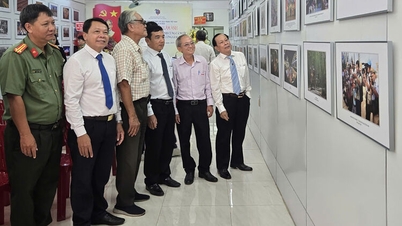







![Dong Nai OCOP transformation: [Article 4] Reaching national standard products](https://vphoto.vietnam.vn/thumb/402x226/vietnam/resource/IMAGE/2025/11/11/1762825820379_4702-cac-san-pham-trai-cay-chung-nhan-ocop-nongnghiep-174649.jpeg)


![Dong Nai OCOP transition: [Article 3] Linking tourism with OCOP product consumption](https://vphoto.vietnam.vn/thumb/402x226/vietnam/resource/IMAGE/2025/11/10/1762739199309_1324-2740-7_n-162543_981.jpeg)





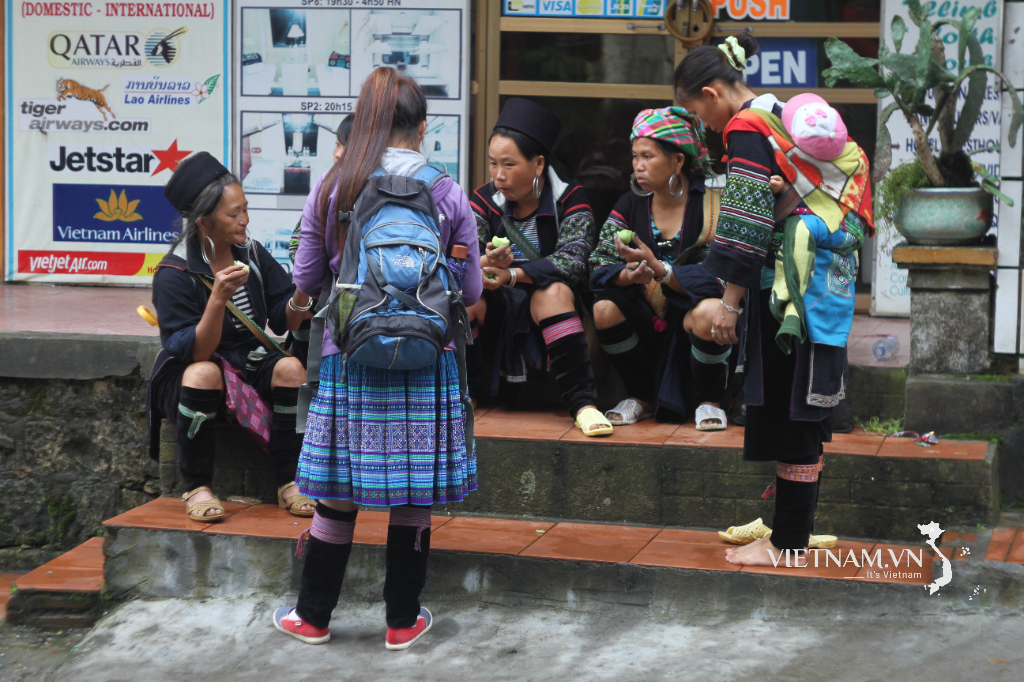
Comment (0)